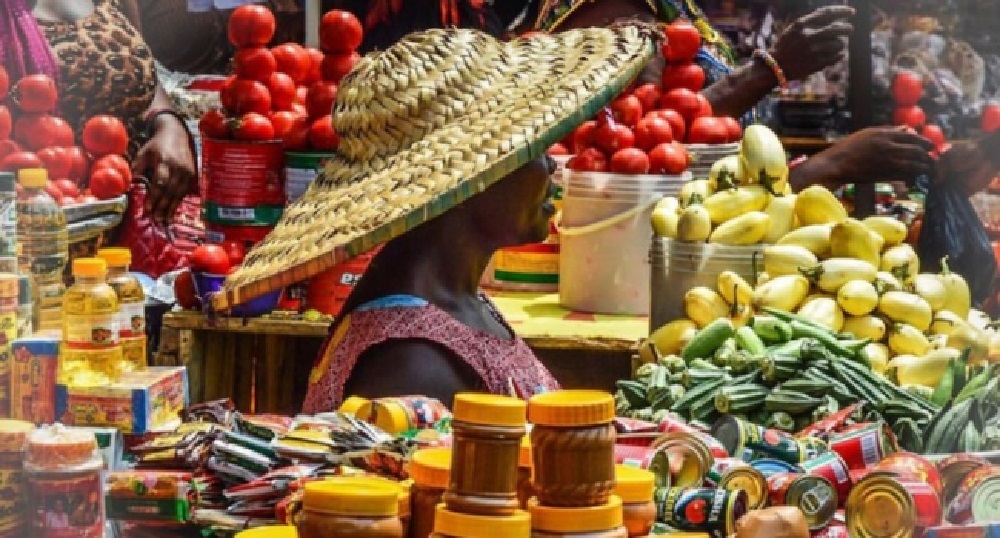Economy
Forex crisis threatens modular refineries N25bn daily crude input

Modular refineries in Nigeria are currently facing the threat of shutting down operations following their inability to access foreign exchange for the purchase of crude oil, a commodity priced in United States dollars.
Nigeria has 25 licenced modular refineries with a combined capacity of producing 200,000 barrels of crude oil daily.
Although not all of the plants are currently operational, it was gathered that the functional ones were increasingly finding it difficult to purchase crude due to the worsening foreign exchange crisis in the country.
Brent, the global benchmark for crude, traded at about $80/barrel on Sunday and had remained within that range for months.
With an estimated capacity of 200,000bpd, the modular refineries, if fully operational, would refine about $16m (or N25.14bn if Thursday’s official closing rate of N1,571/dollar is used.”
Annually, it means the modular refineries has capacity for about 73 million barrels annually, representing about $5.84bn worth of crude oil.
But the facilities, which produce Automotive Gas Oil, popularly called diesel, Dual Purpose Kerosene or kerosene, naphtha and black oil, are now finding it hard to make the refined products available to oil marketers for distribution to consumers.
They explained that the scarcity of dollars had made it almost impossible for operators to purchase crude oil, as the modular refinery players and oil marketers demanded for the sale of crude oil in naira from the Federal Government.
The modular refinery operators, who spoke under the aegis of Crude Oil Refinery Owners Association of Nigeria, also lamented that the Federal Government had not been able to keep its part of the bargain with respect to the provision of feedstock to local crude oil refiners.
Speaking with our correspondent on the matter, the Publicity Secretary, Crude Oil Refinery Owners Association of Nigeria, Eche Idoko, stated that modular refineries may close shop if nothing is done to ameliorate the situation.
CORAN is a registered association of modular and conventional refinery companies in Nigeria, while modular refineries are simplified refineries that require significantly less capital investment than traditional full-scale refineries.
Idoko said, “The purchase of crude oil in dollars is currently the major challenge to modular refineries. We buy crude in dollars and sell our refined products in naira, and this is a major challenge. And apart from that, where do you get the dollars to pay for the crude?
“You heard the Manufacturers Association of Nigeria crying out recently about the dollar saga. We have requested that crude oil be sold to us in naira. And when you do this, you ease the pressure on the naira and this will make our diesel cheaper.
“It will encourage more investors to build and patronise the local refineries. If you take petroleum products off the foreign exchange market, you would have helped the naira by 60 per cent.”
Asked whether the inability of modular refineries to source dollars for crude oil purchase was slowing down production at the plants, Idoko replied, “Yes. We’ve not been able to get enough crude and from the little that we see, we’ve not been able to get forex to buy them.”
On whether this posed a threat to the survival of the plants, the spokesperson of the group said, “Exactly, it is a threat to our existence and it also opens the country to the volatility in the international market.”
Although the association could not state the estimated volume of crude refined by modular refineries in Nigeria, it stated that operators in the sector could refine about 200,000 barrels daily if all of them were operating.
Idoko said, “Right now, I don’t have the actual volume of crude that modular refineries refine annually. However, it is important to state that what each refinery produces in a month is dependent on the amount of crude they are able to get.
“The government has not been able to fulfill its own side of the obligation by providing 60 per cent of the crude required by modular refineries, as captured in the Petroleum Industry Act. So a lot of modular refineries are performing below capacity.
“For instance, OPAC has a 10,000 barrels per day installed capacity, but the most they have been able to refine is like 3,000 to 4,000bpd. The Edo refinery has 1,000bpd, but sometimes they do just 500bpd. Aradel and Waltersmith are the ones that refine as much as 70 and 80 per cent of their capacities because they have their own marginal fields.
“Waltersmith has a capacity of 5,000bpd, while Aradel has 10,000bpd refining capacity. However, if all the modular refineries come onstream, all those that have been licensed so far, our crude demand would be about 150,000bpd and 200,000bpd.”
Nigeria currently has 25 licensed modular refineries. Five of them are operating and producing diesel, kerosene, black oil and naphtha. About 10 are under various stages of completion, while the others have received licences to establish.
Officials of the Federal Ministry of Petroleum could not be reached to tell whether the government would consider selling crude to the modular refineries in naira, as they had yet to respond to enquiries up till when this report was filed.
However, the Minister of State for Petroleum Resources, (Oil), Heineken Lokpobiri, recently confirmed the lack of crude to domestic refiners, noting that Nigeria’s inability to meet its crude oil production quota approved by the Organisation of Petroleum Exporting Countries was the major limiting factor.
Lokpobiri, however, stated that the government was working hard to meet the production quota in order to supply crude oil to local refiners as stipulated in the Petroleum Industry Act.
Meanwhile, Idoko noted that “the current NNPC boss, petroleum minister and NUPRC have all talked about the possibility of having some arrangements with us in naira. But that hasn’t been implemented. Our people still source crude from domestic producers in dollars.
“We buy crude in dollars and sell our refined products in naira. So it is not that we earn dollar proceeds. Our earnings from the sale of diesel, kerosene and black oil is in naira.
“The only dollar component is the sale of naphtha, but most of our refineries won’t sell naphtha, they put it back into the system and reproduce kerosene or diesel. So we still have to visit the Central Bank of Nigeria or domestic dollar market to source our dollars.”
Marketers react
Commenting on the development, oil marketers stated that the continued fall of the naira against the dollar was limiting the release of refined petroleum products from the modular refineries.
Marketers under the aegis of the Natural Oil and Gas Suppliers Association of Nigeria stated that operators of these refineries had stated that the country’s foreign exchange crisis had made it difficult to put a price on refined petroleum products.
They called on the Federal Government and NNPCL to start supplying crude oil to local refineries in naira, considering the persistent fluctuations of the dollar.
The President, NOGASA, Benneth Korie, who conveyed the resolutions of members of the association after their meeting in Abuja, stated that the government should peg the foreign exchange rate at N750/$ in order to enable refineries to start pumping out refined products.
“If for example crude is $80/barrel, we will have to convert it to naira and sell to Nigerians at the naira rate. Let me start by telling you the implications. The problem holding most of these refineries and modular refineries from coming up is the exchange rate crisis.
“So the answer to this is for the government to come out and tell Nigerians that this is how much the dollar is, not this forex rate we hear on TV. Let the government come out and tell us the rate, not the black market rate.
“I know our budget this year was benchmarked at about N750/$. So if the government can maintain the exchange rate at N750/$, heaven will not fall, whether there is inflow or no inflow. It is not the first time we are seeing the dollar at N400 and they (black marketers) are selling for N800.
“So let’s go back and try it, because if we allow this crisis to continue, the dollar may get to what we cannot handle; it may get to the point that all our food items could be sold at dollar rates if care is not taken.
“Therefore, let us go back to N750/$ as it was stated in the budget and work with that, so that the crude oil that will be sold to the refineries will be sold at the exchange rate of N750/$, and it should be converted and we pay in naira.”
Explaining further, he said, “If you are buying crude oil from the government, you pay in dollars, but how do you blend? How much are you going to sell your refined products when you don’t know how much the dollar is going to be tomorrow?
“So it will affect you as a businessman. But if we have one price from the government, then when you are buying the crude from the government or NNPC, you will calculate it based on the government’s rate, convert it to naira and then sell it to Nigerians in naira.
“But when you go to get dollars today and they say it is N1,500, how do you calculate? It creates confusion. So it is causing a problem. Let’s have one rate from the government and things will change positively.”
The NOGASA president went ahead to speak on refineries under the management of NNPCL, as he stated that the forex crisis was also affecting these plants.
“For the Port Harcourt refinery, they said it will come up, and they are also into the business of buying and selling, so if the dollar is not stable, be rest assured it is their problem too,” Korie stated.
When probed further on whether the forex crisis was a major factor limiting the release of products from the refineries, he replied, “For most of them, yes!. This is because you don’t know how much you are going to buy the dollar and so you cannot tell how much you are going to sell (your products). It (dollar) is not stable.”
Speaking further on modular refineries, Korie said operators in this space were finding it tough to source dollars to make crude oil purchase, stressing that the instability of forex had remained a challenge.
On modular refineries, the problem they have is that they do not know how much they will buy and you are selling to them at the dollar rate. If you go to any modular refinery to buy products, the products’ price will be the same at almost the same price as the one you import,” the NOGASA boss stated.
Economy
Inflation surged to 24.23% due to escalating cost of living

Inflationary pressure has reappeared as Nigerians grapple with increases in average costs of basic food items and energy.
For the first time after the rebasing of the Consumer Price Index (CPI), headline inflation spiked in March to 24.23 per cent – 105 basis points above the 23.18 per cent recorded in the previous month.
The National Bureau of Statistics (NBS) yesterday indicated that the rate of increase in the average price level was higher in March than the level in February.
In January, the NBS updated the weight and price reference periods in calculation of the CPI to make the inflationary gauge more reflective of changes in consumption patterns and the economy generally.
The rebasing did not only brought the base year closer to the current period from 2009 to 2024, it also introduced some critical methodology changes to improve the computation processes.
After the rebasing, inflation dropped from 34.80 per cent in the pre-rebased period of December 2024 to 24.48 per cent in January 2025. It dropped further to 23.18 per cent in February.
In its latest report, NBS recorded 186 basis points changes between the monthly inflation rate, with the month-on-month rate rising from 2.04 per cent in February to 3.90 per cent in March.
The NBS attributed the spike to the rise in costs of food and alcoholic beverages, fuels and electricity, among other items.
Analysts at CardinalStone said the resurgence was due to renewed foreign exchange (forex) pressures amid heightened global risk-off sentiment.
They pointed at foreign portfolio investments (FPIs) outflows and increased dollar demand, which saw naira dropping by 2.4 per cent in March.
Experts also cited increase in price of Premium Motor Spirit (PMS) or petrol, following the temporary suspension of the naira-for-crude swap arrangement.
Food inflation rate stood at 21.79 per cent in March 2025. The composite food index decreased to 21.79 per cent from 23.51 per cent.
Core inflation, which excludes volatile agricultural produce prices and energy, rose to 24.43 per cent from 23.01 per cent.
Specifically, the month-on-month food inflation rose by 50 basis points from 1.67 per cent in February to 2.18 per cent in March.
The NBS attributed the increase in food inflation to increases in the average prices of basic food items including ginger, garri, broken rice, honey, crabs, potatoes, plantain flour, periwinkle and pepper amongst others.
On a state-by-state basis, food inflation was higher in Oyo with 34.41 per cent; Kaduna (31.14 per cent) and Kebbi (30.85 per cent).
On the other side, the 9.61 per cent recorded by Bayelsa; Adamawa (12.41 per cent) and Akwa Ibom (12.60 per cent), were the lowest inflation rates.
Analysts expressed concerns that the resurgent inflationary pressure might lead to renewed tightening stance by the Central Bank of Nigeria (CBN).
CBN Governor Dr. Olayemi Cardoso, had at the end of the first Monetary Policy Committee (MPC) meeting in 2025, reiterated the apex bank’s commitment to orthodox monetary policies, noting that the apex bank’s stance will be reflective of the inflationary trend.
With inflation rate dropping in February, the MPC had decided to maintain all key monetary policy parameters, including the Monetary Policy Rate (MPR) at 27.50 per cent, the asymmetric corridor around the MPR at +500/-100 basis points, the Cash Reserve Ratio (CRR) at 50.00 per cent for Deposit Money Banks and 16.00 per cent for Merchant Banks, and the Liquidity Ratio at 30.00 per cent.
Clarifying the impact of the rebased CPI, Cardoso had explained that the lower inflation figure should not be misinterpreted.
He underlined the need to analyse more data before drawing comparisons, noting that the CBN is currently assessing the figures and will provide further guidance in due course.
The CBN boss stressed the critical importance of collaboration between monetary and fiscal authorities in sustaining recent economic improvements.
Addressing concerns about the impact of elevated borrowing costs on economic growth, the CBN governor assured that the apex bank’s primary objective is to stabilize the foreign exchange and financial markets.
He expressed confidence that such stability would attract increased foreign investments, stimulating the much-needed economic growth.
Cardoso also highlighted the competitiveness of the Nigerian currency, which has spurred growing interest from international investors.
Economy
SEE Current Black Market Dollar (USD) To Naira (NGN) Exchange Rate

The exchange rate between the US dollar and the Nigerian naira continues to draw significant attention from individuals and businesses alike, especially those involved in international trade and remittances.
On Saturday, April 12, 2025, activity in the Lagos parallel market, commonly known as the black market shows that the buying rate for one US dollar stands at ₦1570, while the selling rate is ₦1575.
These figures are sourced from traders and Bureau De Change (BDC) operators who are active in key currency exchange hubs across Lagos.
Why the Black Market Rate Matters
Although the Central Bank of Nigeria (CBN) does not officially recognize or support the use of the black market for foreign exchange transactions, many Nigerians still rely on it due to difficulties in accessing forex through official banking channels. Issues such as limited availability, long processing times, and strict documentation requirements have made the black market a more accessible, albeit riskier, alternative.
CBN’s Official Position
The CBN continues to warn against participating in parallel market trading, stating that such activities undermine the stability of the national currency. The apex bank urges those in need of foreign currency to apply through authorized financial institutions, which are mandated to follow official exchange rates.
Nonetheless, the disparity between the official and unofficial markets persists, often influenced by market forces such as demand, inflation, and fluctuations in Nigeria’s foreign reserves.
Latest Exchange Rates Overview
Black Market (Parallel Market) Rate
Currency Pair Buying Rate Selling Rate
USD/NGN ₦1570 ₦1575
CBN Official Rate
Currency Pair Highest Rate Lowest Rate
USD/NGN ₦1630 ₦1570
Key Notes for Forex Users
The exchange rates in the black market often differ slightly from one location or dealer to another due to market volatility and negotiation margins.
Rates can also fluctuate within hours based on economic news, government policies, and global financial trends.
It is advisable to compare rates from multiple sources before conducting any large transactions, especially in volatile markets.
What This Means for Nigerians
The current forex rates reflect continued pressure on the naira, and many analysts believe that inflation, reduced oil revenue, and inconsistent monetary policies are key factors driving the demand for the dollar. For everyday Nigerians, this means the cost of imported goods remains high, and businesses dependent on international suppliers face growing challenges.
Until forex supply stabilizes through official channels, the black market will likely remain a major player in Nigeria’s currency landscape.
Economy
CHECK Exchange Rate As Naira Weakens More In Parallel Market

Naira has continued its downward slide in the parallel market on Thursday, exchanging at N1,621/$1, a depreciation from N1,580/$1 recorded just a day earlier on Wednesday.
This represents a N41 decline in 24 hours, deepening concerns among traders and economic watchers about sustained volatility in the FX market.
While the official exchange rate stood at N1,644.00/$1 on Wednesday, according to figures published on the Central Bank of Nigeria (CBN) website, there was no updated official rate published by the CBN several hours after the market close on Thursday.
Meanwhile, market participants at Wuse Zone 4 in Abuja attributed the persistent depreciation to a resurgence in speculative activities, unmet demand from importers, and lingering confidence issues in the foreign exchange market.
Alhaji Aminu Gwadabe, President of the Association of Bureau De Change Operators of Nigeria (ABCON), attributed the ongoing volatility in the forex market to a mix of local and global uncertainties. In a message sent to Nairametrics, he stated:
“The volatility, fears, happenings, and shocks in both the local and international markets called for disdain.
President Trump’s tariff announcements have sent markets into panic, loss of confidence, revenue losses, and budget reviews.”
He added that despite ongoing interventions by the CBN, instability persists.
“As usual, the CBN, being a catalytic actor, must continue to ensure stability through timely interventions. However, volatility remains a challenge and needs to be more comprehensively addressed,” Gwadabe said.
He further called for an expanded policy transmission mechanism to better serve the retail end of the FX market.
“It is therefore necessary for the CBN to reevaluate the efficacy of that Policy transmission mechanisms and expand its scope to the BDCs retail segment of the market to cater for the needs of the critical retail needs of invisible transactions where the BDCs pose the most potent tool of the CBN policy transmission mechanism.”
Dr. Muda Yusuf, CEO of the Centre for the Promotion of Private Enterprise (CPPE), also linked the naira’s recent struggles to global developments and speculative pressures.
“This is not unconnected to recent policy signals from President Trump and global oil price movements. The market is heavily information-driven, and speculative pressure has spiked following the tariff announcements,” Yusuf explained.
“Now that Trump appears to be having second thoughts, we might even see a bit of a breather in the FX market,” he added.
Meanwhile, traders on the ground say the situation is being worsened by the uncertainty surrounding ongoing government reforms and inconsistent access to official FX windows.
“The demand today was unusually high, especially from small businesses that can’t access the banks. It’s putting pressure on our supply,” a trader at Abuja’s Wuse Zone 4, who asked not to be named stated.
The spread between the official exchange rate of N1,644/$1 and the parallel market rate of N1,621/$1 narrowed slightly on Thursday, a sign that some convergence may be taking place, despite persistent volatility.
Market analysts warn that unless the CBN resumes consistent interventions or significantly boosts FX liquidity, the naira may continue to face downward pressure in the weeks ahead
The continued slide of the naira, despite heightened CBN interventions, signals persistent challenges in Nigeria’s FX liquidity and structural demand-supply mismatch.
-

 News15 hours ago
News15 hours agoTinubu Remains Engaged In Governance From Europe, Will Return After Easter – Presidency
-

 News15 hours ago
News15 hours agoFirst Lady Convoy Kills Seven-Year-Old Girl In Ondo State
-

 News2 hours ago
News2 hours agoJust in: Many Feared Killed In Abuja
-

 Foreign15 hours ago
Foreign15 hours agoTrump To Close US Embassies In South Sudan, France, Others
-

 News6 hours ago
News6 hours agoEmergency Rule: We should be thankful to President Tinubu -Wike
-

 News6 hours ago
News6 hours agoSenator Natasha on FB listed 3 politicians that should be arrested if anything happens to her
-

 News14 hours ago
News14 hours agoNJC investigates 18 Imo judges over suspected age falsification
-

 News14 hours ago
News14 hours agoNANS threatens protest over alleged student loan diversion






